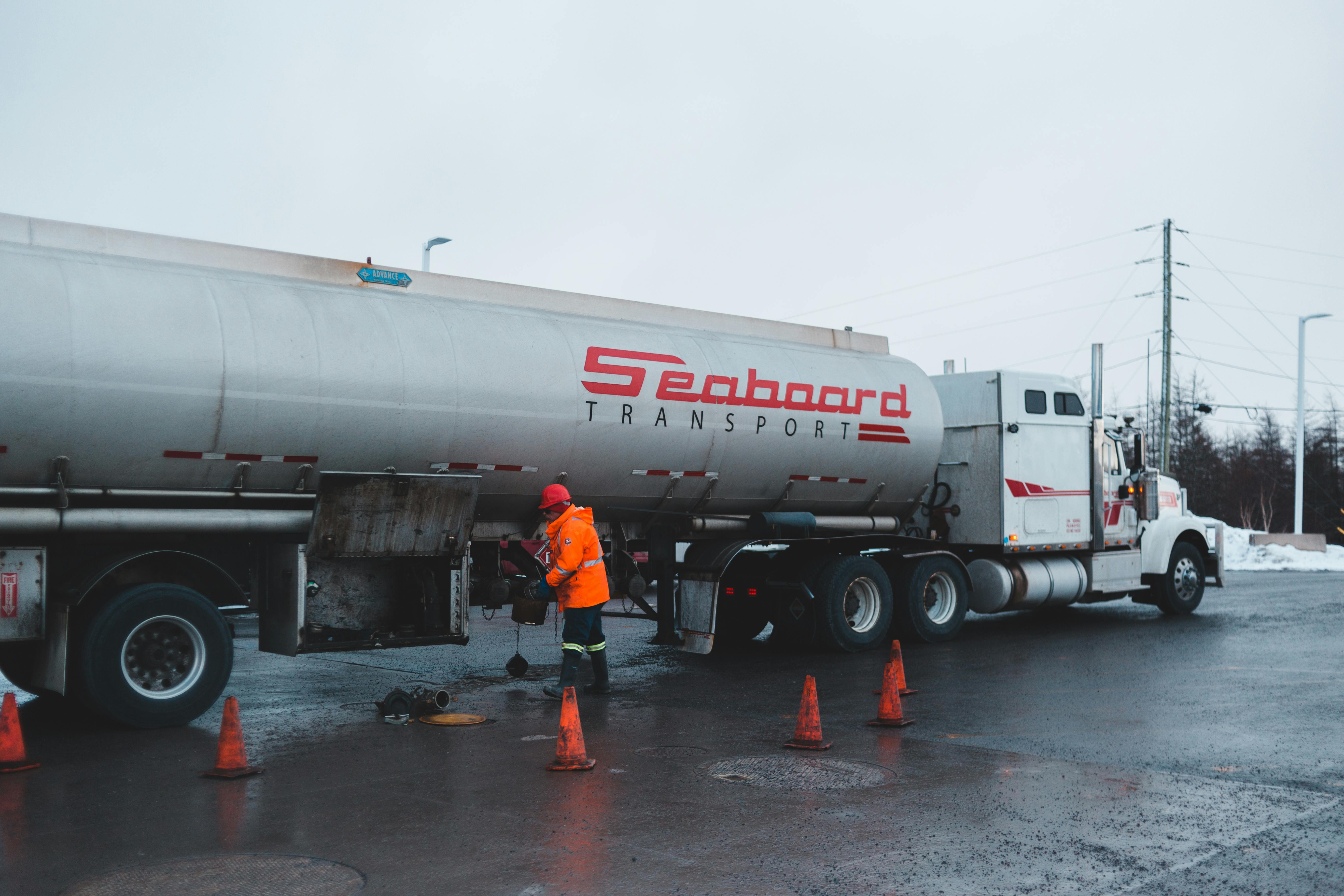Maintaining your trailer ball is an important part of ensuring that your trailer performs as expected. Greasing the trailer ball is one way to ensure that the ball and its components remain in good working order. In this guide, we’ll explore why it’s important to grease your trailer ball and how you can do so properly. We’ll also discuss some tips on how to maintain the trailer ball and extend its life. So, if you’re wondering whether or not you should grease your trailer ball, read on for all the details!A trailer ball is a metal ball-shaped coupling device that is used to attach a trailer to the hitch of a tow vehicle. The trailer ball is secured to the trailer hitch using a hitch pin or similar device, and it is attached to the tow vehicle’s hitch receiver with a hitch pin or locking pin.
What Does Greasing a Trailer Ball Do?
Greasing a trailer ball is an important part of maintaining your trailer. The trailer ball is the part of the hitch that connects the trailer to the towing vehicle. Greasing it helps protect it from corrosion and wear, and keeps it in good working order. When you grease the ball, you help ensure that the connection between your towing vehicle and trailer is secure and reliable.
The trailer ball is typically made of steel or iron, so it can corrode over time when exposed to moisture, dirt, and other elements. Greasing prevents corrosion by providing a protective layer between the metal and outside elements. It also prevents metal-on-metal contact, which will wear on the metal over time. Grease also helps keep dirt and debris out of moving parts, which can lead to damage if left unchecked.
Finally, greasing the trailer ball helps keep everything lubricated so that it runs smoothly when in use. Without lubrication, friction between two surfaces can cause wear on both surfaces as well as create heat buildup which can damage components or cause them to fail prematurely. By regularly greasing your trailer ball you’ll help ensure that it’s running at its peak performance for years to come.
It’s important to note that not all types of grease are suitable for use on a trailer ball. It’s best to consult with an automotive professional about what type of grease is best for your particular set up. Some common types of grease used on trailer balls include lithium-based grease or marine-grade lubricants designed specifically for boat trailers or RV trailers.
Overall, greasing your trailer ball goes a long way in keeping it in good condition and ensuring that your connection between your towing vehicle and trailer is secure and reliable when in use. Be sure to consult with an automotive professional about what type of grease is best for your particular set up before getting started – this will help ensure that you get maximum life out of your trailer ball!
Tools Needed for Greasing a Trailer Ball
Greasing a trailer ball is important in order to maintain your trailer’s hitch and keep it functioning properly. To properly grease a trailer ball, you will need the following tools: a grease gun, grease, and an adjustable wrench.
The grease gun is necessary in order to properly lubricate the trailer ball. The gun uses pressure to force the grease into the crevices of your trailer hitch and ensure that it is completely lubricated. Make sure to purchase a high-quality grease gun that will work well with the type of grease you are using.
Grease is also necessary for greasing a trailer ball. It helps to reduce friction between parts, making them last longer and function more efficiently. Make sure that you purchase a high-quality grease specifically designed for use on trailer balls. It should be able to withstand extreme temperatures and pressures without breaking down or becoming ineffective.
Lastly, an adjustable wrench is needed in order to loosen and tighten the nuts on the trailer ball. This will ensure that everything is securely attached and there is no danger of the ball becoming loose while driving. Make sure that you have an adjustable wrench of the correct size in order to ensure proper fitment.
These are all the tools needed for greasing a trailer ball. Having these items on hand will make it much easier to complete this task safely and efficiently. Be sure to follow all instructions carefully when greasing your trailer hitch in order to avoid any damage or injury.
Preparing the Trailer Ball for Greasing
Before you can grease your trailer ball, you must first prepare it. This involves cleaning off any dirt, oil, or debris that may be present on the surface. To do this, use a wire brush to scrape away any foreign material and then wipe down the ball with a rag or cloth. After cleaning, you should check for any cracks or damage to the trailer ball and address these issues before greasing. Once the trailer ball is clean and undamaged, it is ready for greasing.
When preparing to grease the trailer ball, make sure to select a grease that is suitable for harsh environments and designed specifically for trailer balls. This will help ensure that it stays lubricated even when exposed to extreme temperatures or moisture. Apply a liberal amount of grease evenly around all surfaces of the trailer ball using either a brush or an appropriate tool such as a grease gun.
Once you have applied the grease, be sure to wipe off any excess so that it does not accumulate in areas where it can attract dirt or debris. Make sure that all areas are coated with an even layer of grease before mounting the trailer ball back onto your vehicle. With proper preparation and lubrication of your trailer ball, you can be assured that it will function as intended every time you hit the road!
Applying Grease to the Trailer Ball
Applying grease to the trailer ball is an important part of maintaining your trailer. It is important to lubricate the ball so that it can move freely without any issues. Applying grease helps reduce wear and tear on the trailer ball and prevents metal-on-metal contact that can cause corrosion. It also helps reduce friction, which increases the life of your trailer ball. To apply grease, you will need a quality grease gun, a tube of grease, and a rag or cloth.
Begin by inspecting the trailer ball for any damage or corrosion, and then wiping it down with a rag or cloth. Once it is clean, attach the tube of grease to the grease gun and fill it with enough grease for your job. Then, place the nozzle of the gun over the top of the trailer ball and press down on the handle until you hear a clicking sound or feel resistance from the pressure being applied. This will dispense a small amount of grease onto the trailer ball. Continue doing this until you have applied enough grease to fully lubricate it. Finally, remove any excess grease from around the ball with a cloth or rag and you are done!

Cleaning the Surrounding Areas After Greasing
Greasing is a common part of regular maintenance for many machines, but it can create a mess if not done properly. It is important to clean up any excess grease or oil that may have spilled during greasing to prevent potential damage to the surrounding areas. Here are some tips for cleaning up after greasing:
• Start by using a dry cloth or paper towels to wipe away any excess grease or oil that has spilled. Make sure to check all surfaces where grease may have splashed, including countertops, floors, walls and equipment.
• If there are stubborn spots that won’t come off with a dry cloth, use an appropriate solvent such as mineral spirits or kerosene to remove them. Be sure to read labels carefully and take all necessary safety precautions when using solvents.
• For large spills, you may need to use an absorbent material such as sawdust, kitty litter or oil dry. Sprinkle the absorbent material over the area and let it sit for 10-15 minutes before sweeping it up with a broom and dustpan.
• Always dispose of any used absorbents in an appropriate manner according to local regulations.
Cleaning up after greasing is an important part of proper maintenance and can help prevent potential damage to your equipment or surrounding areas. By following these tips, you can ensure that your workspace is free from any residual grease or oil spills.
Greasing Your Trailer Ball
It is important to routinely grease your trailer ball to ensure it is in good working condition. Failure to do so can cause it to wear down over time, leading to expensive repair bills or even a dangerous malfunction on the road. But just how often should you grease your trailer ball?
The answer depends on how often you use your trailer and the types of conditions you typically encounter while on the road. If you use your trailer frequently, it’s a good idea to grease it every few months. This will ensure that dirt and debris don’t build up and cause damage or corrosion. However, if you rarely use your trailer, greasing it once a year should be sufficient.
When greasing your trailer ball, make sure that you use a high-quality lubricant that is designed for this type of application. Generally speaking, any automotive or marine lubricant should work well. Make sure to follow the manufacturer’s instructions when applying the lubricant – usually this involves cleaning off any dirt or debris before applying a generous amount of lubricant to the ball.
It is also important to check the condition of your trailer ball regularly, even if you are following a regular greasing schedule. If you notice any signs of wear or corrosion, be sure to address them as soon as possible in order to avoid more expensive repairs down the line.
In conclusion, how often you should grease your trailer ball depends largely on how often you use it and what types of conditions it encounters while on the road. Regularly greasing your trailer ball with a high-quality lubricant can help keep it in good working condition for years to come. Additionally, be sure to inspect it regularly for signs of wear or corrosion so that any necessary repairs can be made quickly and effectively.
Common Mistakes When Greasing a Trailer Ball
Greasing your trailer ball is an important part of maintaining your trailer and ensuring it remains in good working order. However, it is all too easy to make mistakes when greasing a trailer ball which can lead to problems down the line. Here are some of the most common mistakes people make when greasing a trailer ball and how you can avoid them:
1. Not using the right grease: When greasing a trailer ball, it’s important to use the right type of grease. This will depend on what type of trailer ball you have, as different types require different types of grease. If you’re unsure, always consult your manual or speak to an expert.
2. Applying too much grease: Applying too much grease when greasing a trailer ball can cause build up or create mess. To avoid this, only apply enough grease to lightly coat the surface and wipe away any excess.
3. Applying too little grease: Not applying enough grease when greasing a trailer ball can cause friction and wear over time, damaging your trailer ball and leading to costly repairs down the line. Always ensure you apply just enough grease so that it coats the surface evenly.
4. Not wiping away excess grease: After applying some lubricant onto your trailer ball, it’s important to wipe away any excess with a cloth or paper towel. Leaving excess lubricant on the surface can attract dirt and other debris which can damage your equipment.
By following these simple tips, you should be able to ensure that your trailer ball is properly lubricated and in good working order for years to come!

Conclusion
Maintaining your trailer ball is important for safety and reliability when towing. Greasing the trailer ball should be done every 6-12 months, or whenever it appears rusty or corroded. It is important to use a high-quality trailer ball grease to prevent rust and corrosion. While this may seem like a tedious task, it does not take much time or effort and can help you avoid costly repairs.
In conclusion, greasing your trailer ball should be done regularly in order to ensure that the connection between your tow vehicle and trailer is secure and reliable. Taking the time to properly grease your trailer ball with high-quality grease will ensure that you can safely tow your load without any problems.




